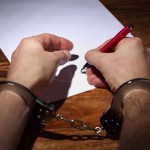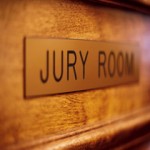Audio clip: Adobe Flash Player (version 9 or above) is required to play this audio clip. Download the latest version here. You also need to have JavaScript enabled in your browser.
 In This Episode:
In This Episode:
I pull back the curtain on defendants testifying on their own behalf. We explore the myths surrounding why a defendant would choose to testify or choose not to testify. There are a variety of factors that lawyers use to decide whether to call their client as a witness. Some have to do with the charges, some with the client himself and some even have to do with the prosecutor assigned to the case.
In high profile cases, the pundits play armchair quarterback, lauding or mocking other lawyers’ decisions to call their clients to the stand, but the reality is, it is nearly impossible to second guess the decision of the trial lawyer. He or she alone is armed with the necessary information to make that call and the facts from inside a case are often much different than the facts available to outside commentators.
TRIAL LAWYER MENTOR Quick Tip:
The process for deciding which witnesses to call to the stand can be helpful for anyone putting together a compelling argument or persuasive presentation. Learn how to use the same factors to keep your presentation focused and move your argument forward.
LAWYERS and LAW STUDENTS:
Click here to sign up for our free newsletter where I share in depth tips and strategies for mastering the Art of the Jury Trial.
Download AUDIO here (MP3)

